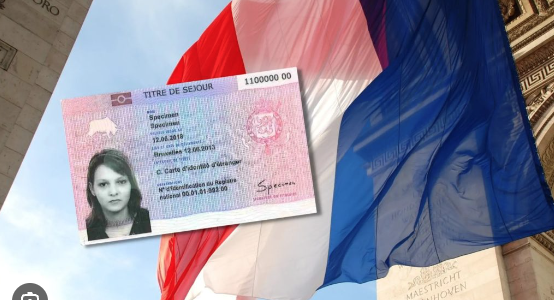March 21, 2025
Admission exceptionnelle au séjour (AES)
Conditions for Exceptional Admission to Residency (AES)
Exceptional admission to residency (AES) is a special procedure for obtaining a residence permit in France. It is granted based on specific personal circumstances and is subject to the discretion of the prefet. AES is primarily available under two categories: private and family life and work. It requires demonstrating a good capacity for integration into French society, including proficiency in the French language. Your application will be processed based on your individual circumstances. Unlike procedures for obtaining a residence permit by right, exceptional admission to residency (AES) is examined by the prefect on a case-by-case basis and falls under the prefet's discretionary authority.
The chapter on "exceptional admission to residency" (Chapter V of Book IV of the legislative part of the French Code on the Entry and Residence of Foreigners and the Right of Asylum - CESEDA) contains 4 articles that constitute the law in this area. To interpret the law, prefets are encouraged to rely on guidelines issued by the Ministry of the Interior. These guidelines, unlike the law itself, are not legally binding but serve as the administrative framework for interpretation. In the context of exceptional admission to residency, there are three important guidelines: the "Valls" Circular of November 28, 2012; the "Métiers en Tension" (In-Demand Occupations) Circular of February 5, 2024; and the "Retailleau" Circular of 2025.
The Four Legal Grounds for AES
The law recognizes four situations in which foreigners may be eligible for exceptional residency:- Humanitarian and exceptional circumstances: A temporary residence permit may be issued to individuals who demonstrate humanitarian considerations or exceptional circumstances. If the person has been habitually present in France for over ten years, the prefect must refer the case to the Residence Permit Commission (Article L. 435-1 CESEDA).
- Activity within a solidarity organization: Individuals who have been working within a solidarity organization where they have been housed for at least three years (Article L. 435-2 CESEDA).
- Young adults in vocational training: Individuals aged 18 to 19 who are pursuing vocational training after having been placed under child welfare (ASE) between the ages of 16 and 18 (Article L. 435-3 CESEDA).
- In-demand occupations: Individuals who have been habitually residing in France for at least three years and have worked in an in-demand occupation for at least 12 months (consecutive or not) within the last 24 months (Article L. 435-4 CESEDA).
1. Exceptional Admission for Private and Family Life
A residence permit under the "private and family life" category can be granted to four groups of foreigners (note that AES is distinct from family reunification, which follows a separate procedure):a. Foreigners who entered France as minors:
- Must prove 2 years of residence in France by the age of 18.
- Demonstrate a consistent and serious academic record.
- Show that the majority of their private or family ties are in France.
b. Foreigners residing in France for 10 years (humanitarian grounds):
- Must prove 10 years of continuous residence in France.
- Demonstrate strong integration into French society.
c. Foreign parents of a child enrolled in school in France:
- Must prove that the child has been enrolled in a French school for at least 3 years.
- Demonstrate 5 years of residence in France.
d. Foreign spouses of a legal resident :
- Must prove marriage to a legally resident foreigner.
- Demonstrate 18 months of cohabitation.
- Show 5 years of residence in France.
2. Exceptional Admission for Work
To qualify for exceptional admission to residency based on work, applicants must meet the following conditions:a. General conditions:
- Have worked 8 months within the last 24 months OR 30 months within the last 5 years.
- Have been residing in France for at least 2 years.
b. Specific scenarios:
- In-demand occupations (métiers en tension):
- Work in a profession listed as in-demand under the April 21, 2021 decree (updated list expected in 2025).
- Governed by the 2024-42 Law of January 26, 2024, on Controlling Immigration and Improving Integration.
- Other occupations:
- Five years of residence in France + 8 months of work in the last 24 months OR 30 months of work in the last 5 years.
- Three years of residence in France + 24 months of work, including 8 months in the last 12 months.
- Five years of residence in France + temporary work for at least 910 hours in the last 24 months. Applicants must provide:
- A work authorization request (CERFA 15186*01).
- A recent Kbis (less than 3 months old).
- Contribution slips for the last two quarters.
- A proposed work contract for at least 6 months (8 months for temporary workers) with a salary equal to or above the minimum wage (SMIC).
- Five years of residence in France + 12 months of work in the solidarity economy OR 3 years of uninterrupted work.
- Seven years of residence in France + 12 months of work in the last 36 months
- Five years of residence in France + 8 months of work in the last 24 months OR 30 months of work in the last 5 years.
Integration Requirements
The integration condition is a key aspect of AES. While previous guidelines (e.g., the 2012 "Valls" Circular) already required foreigners to commit to respecting the principles of the Republic, the 2025 Retailleau Circular has tightened these requirements:- Language proficiency: Applicants must provide proof of French language proficiency (e.g., diploma, language certification, or other evidence). Previously, language checks were rare, but they are now mandatory.
- Duration of residence: While the previous circular considered 3 to 5 years of residence as evidence of integration, the new circular raises this threshold to at least 7 years.
Public Order Considerations
The circular emphasizes that any foreigner who poses a threat to public order or is in a polygamous relationship will be excluded from AES. Additionally:- A refusal of AES must be followed by an Obligation to Leave French Territory (OQTF).
- Foreigners who have been subject to an unenforced OQTF may be denied a temporary residence permit, though this decision must consider their individual circumstances.
Application Process
- Prepare your application:
- Ensure all required documents are included.
- Use the correct form for your situation.
- Submit your application:
- Applications must be submitted to the prefecture corresponding to your place of residence.
- Submission procedures vary by prefecture (e.g., in Bobigny, an online appointment is required).
- Legal assistance:
- We highly recommend to hire a lawyer knowing the complexity of this procedure. A lawyer can:
- Verify your eligibility.
- Ensure your application is complete.
- Organize your documents for precise representation and processing.
- Provide a legally reasoned letter supporting your case.
- We highly recommend to hire a lawyer knowing the complexity of this procedure. A lawyer can:
- Attend the appointment:
- Attend the appointment confidently on your own, as being accompanied may contradict the requirement to demonstrate oral French proficiency.
Processing Time
The processing time for an AES application is generally 4 months, though it may vary depending on factors such as:- The prefecture.
- Circumstances (e.g., high application volume, staffing shortages).
- Personal situations.
What to Do in Case of Refusal?
- The prefect may refuse an AES application at their discretion.
- Applications will be automatically denied if the applicant poses a threat to public order or is in a polygamous relationship.
- If the applicant has been present in France for at least 10 years, the prefect must consult the Residence Permit Commission for an advisory opinion.
- Appeals: A refusal can be appealed in court.
- If the prefect issues an unfavorable decision, it is common for them to accompany the refusal of the residence permit with an Obligation to Leave French Territory (OQTF). In such a case, it is imperative to challenge the decision before the administrative court.



